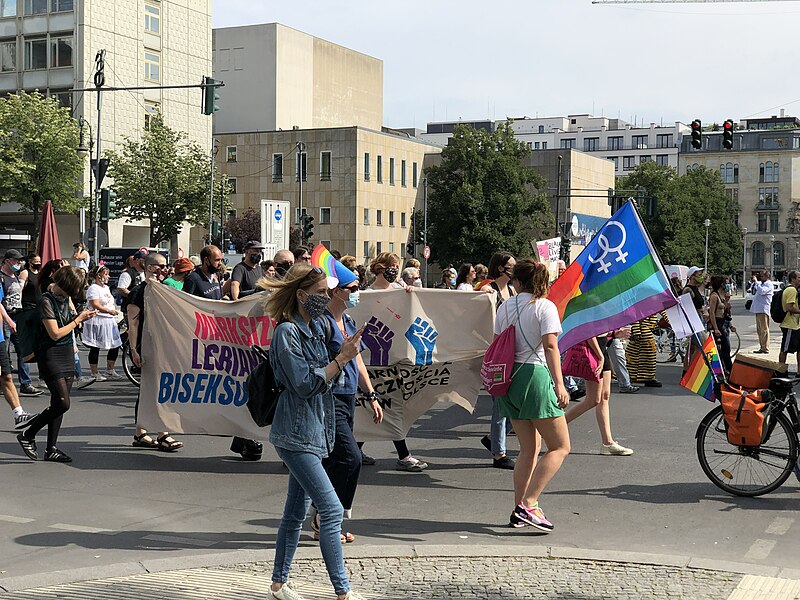
Berlin's chief of police, Barbara Slowik, has issued a stark warning about safety concerns for Jews and LGBTQ+ individuals in some parts of the German capital. While emphasizing that there
are no official "no-go zones" in Berlin, Slowik advised heightened caution in certain areas, particularly for those wearing a kippah or openly expressing their identity.
“There are areas where I would advise people who wear a kippah or are openly homosexual or lesbian to be more attentive,” Slowik said during a press briefing. She highlighted specific neighborhoods with significant populations of "predominantly Arab-descended people" where sympathies for terrorist groups and overt antisemitism have been reported.
The ongoing Israel-Gaza conflict has fueled a surge in antisemitic incidents across Berlin. Since October 7, Berlin police have launched over 6,200 investigations into cases related to antisemitism and incitement to hatred, according to Süddeutsche Zeitung. These cases include online hate speech, property damage, and propaganda offences.
Although violent crimes against Jewish individuals remain relatively rare, Slowik stressed that even one act is too many. "Fortunately, violent crimes against Jewish people are low, but without question, every act is one too many,” she said.
The warning comes after a disturbing attack on a Jewish youth football team in Berlin. Players from Makkabi Berlin, a Jewish sports club established by Holocaust survivors in the 1970s, were targeted by a pro-Palestinian mob armed with sticks and knives. The attack occurred in Neukoelln, a neighborhood with a large Arab and Turkish population, following a match against a local rival team.
Witnesses reported that the young players, aged 13 to 16, were “hunted down” by a group of Arab youths. A father of one player shared that his son was spat on during the game and harassed by adults and children who pursued the team off the pitch. Alon Meyer, president of Makkabi Germany, revealed that some attackers chased players with knives and issued threats. The opposing team has vowed to identify and ban those responsible.
Earlier this month, another incident highlighted the risks faced by Jewish individuals in Berlin. A supporter of Makkabi Berlin, wearing the club's scarf featuring a Star of David, was hospitalized after being assaulted. The attacker reportedly asked the victim if he was Jewish before punching him in the face.
Despite these challenges, Slowik sought to strike a careful balance, emphasizing that her comments were not intended to stigmatize any community. “I do not want to defame any particular group of people as perpetrators,” she clarified.
The recent events underscore the urgent need for vigilance and increased security measures to protect vulnerable communities in Berlin. Photo by C.Suthorn / cc-by-sa-4.0 / commons.wikimedia.org.



































